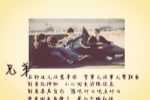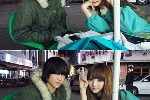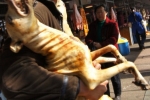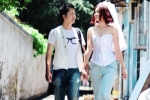
英语作文第一点第二点第三点句型【一】
1。 It is considered /thought that人们(有人,大家)认为
2。 It is generally /usually accepted /agreed/recognized that普遍(一般,通常)认为
3。 It is believed that有人(人们,大家)相信
4。 It is well—known that大家知道(众所周知)
5。 It is said that据说(有人说)
6。 It is learned that据闻(悉)
7。 It is supposed that据推测
8。 It is estimated/predicted/calculated that据估计(预计)
9。 It must be pointed that必须指出
10。 It is reported that据报道
11。 It must be admitted that必须承认
12。 It will be seen that可见(可以看出)
13。 It will be seen from this that由此可见
14。 It is understood that不用说(都知道)
15。 It can not be denied that无可否认
16。 It has been proved/demonstrated that已经证明
17。 It may be confirmed that可以肯定
18。 It may be safely said that可以有把握地说
19。 It is sometimes asked that人们有时会问
20。 It is expected that/hoped that人们希望
21。 When it comes to要说到,要谈及
英语作文第一点第二点第三点句型【二】
考辅P42
1.IgaveTomthebook.//
2.Heboughthismothersomeflowers.//
3.Thebridgewasbuiltbyworkerslastyear.//
4.Wehavetofinishtheworktoday.//5.Hewilldohishomeworktomorrow.//
6.Wecleantheroomseveryday.//7.Thewriterspent3yearsonthebook.//
8.Itisabookwithalotofbeautifulpictures.//
9.Thebooksoldverywellduringthefirstweek.//firstweek.
10.Marywastheonlyoneintheoffice.//
11.Shefinishedherworkat10o’clock.//Shedidn’12.Shehadtotakeataxihomebecauseitwastoolate.
13.LizaandMikearrivedattheGreatWallintwohours.
14.Theywerehappytogettothetop.//
15.TheyenjoyedthemselvesontheGreatWall.//
16.ThepostmansentSusanandTommyapaperbox.
17.Theyopeneditandfoundapresentfromtheirfriend.
18.Theybothlikedthepresentandfeltveryhappy.
19.Alicedidn’tfeelwelltoday,soshewenttothehospital.
20.Thedoctoraskedhersomequestions.//
21.Thedoctordidn’tgiveheranymedicineintheend.
(全真1)
1.ThecapitalAirporthasbeeninusefor20years.//
2.ThecapitalAirportisthelargestoneinChina.//
3.Ihavenevertakenaplane.MyfriendLiPing,either.//
(全真2)
1.Fathergave$20formetobuysomebooks.//
2.IwasexcitedwhenIsawsomanygoodbooksinthebookstore.
3.ButsomebookswouldcostmorethanIhave.//
ButIdidn’//(全真3)
1.ManyChinesefriendswenttotheparty.2.Tonywasgivenalotofpresentsbyhisfriends.//Tony’
3.SeeinghisChineseteacheratthepartymadeTonyveryhappy.//(全真4)
1.Iwanttoeatsomething.//2.Therefrigeratorisempty.//3.Bobspentfifteenyuanonthehamburger.///(全真5)
1.Mr.Wangdoesn’tworkinthatfactoryanylonger.//
2.Mr.Wanglefthomeearlierinordertocatchthebus.3.Mr.Wangfindsitnoteasytogetalongwiththatyoungguy.//(专家1)
1.Manypeoplewentshoppingyesterday.
2.Janespent4hourstobuyNewyeargifts.//
3.Shewassotiredthatshecouldn’twalkanylonger.//
(专家2)
1.Myfriendssaidtome,“Areyoufree?”
2.Shewantedmetogoshoppingwithher.
3.Shethinksitapleasuretogoshoppingwithafriend.
英语作文第一点第二点第三点句型【三】
In short, it can be said that
英语作文第一点第二点第三点句型【四】
有时我会想,人类发明各种玩意儿,让生活越来越科技化,这种趋势无穷无尽,究竟有什么意义呢?我们非要穿千奇百怪的衣服吗?我们非要吃形形色色的食物吗?我们非要住豪华亮丽的大房子吗?我们把自己局限在一定的地理空间,忙忙碌碌耗费生命,就为了吃更好的穿更美的住更大的。而当更美味的东西摆在眼前只能随便吞两口赶着上班,更漂亮的衣服回到家也想赶快换掉,更大的房子绝大部分时间只待在睡觉那张床所占的的几平米地。我们是何苦呢?越是进步越带来单调和机械,我们作茧自缚却乐此不疲。
而在这个除了人没有什么东西是真实的世界里,仅存的一点真实是Abi用纸折的企鹅和Bing的一颗真心。Bing发现Abi的歌唱才华,鼓励她参加比赛。“达人秀”的门票很贵,普通人很难进入,有梦想的人拼命踩单车集足一千五百万点数才够资格。然而比赛操纵在一群人手里,他们不理会公平原则,挑选他们想要的人率先上台,上台前每人都必须喝下一杯饮料,以便更好操控。Bing用他哥哥的遗产买了票送给Abi,希望她能一展才华带给大家一些真实的感觉,不料她被设计成色情女星。Bing一怒之下砸了屏幕得到一块玻璃,带着它上了达人秀舞台,抵着喉咙向大家喊话,试图唤醒所有人的知觉,结果被当成一场激烈的表演而入选。而他自己,神勇的反抗只是换来更大的房间,一如既往的无聊生活。
消费主义笼罩所有人,除了娱乐,他们没有别的判断力,被动地接受一切信息。小胖男除了玩射击游戏,就是看大胃王节目为别人痛苦的吃相哈哈大笑。事实上我始终搞不明白这类娱乐节目的笑点在哪。过台湾综艺一度以整人为主题,艺人被整得越惨,节目就越火。打开视频网站,号称“笑死人不偿命”的都是些人类摔跤、被狗咬、被车撞、掉水里、挂树上的镜头集锦。看这些画面我很难使用笑的表情,拜托,那得多疼!以别人的痛苦为乐,套用第一集的一句台词“这世界太扭曲了”!
英语作文第一点第二点第三点句型【五】
(一)改写一般疑问句:
(1)原句中有be动词的,将be动词提前,其他顺序不变。
例如:Thisisacat.变为Isthisacat?
(2)原句中有情态动词的(can/may/shall/would)将情态动词提前,其他顺序不变。例如:Hewouldlikeapie.变为Wouldhelikeapie?
(3)原句中是一般动词的,在句首加助动词do或dose(用于主语是第三人称动词单数的句子),其他顺序不变。例如:Iplaytheguitar.变为Doyouplaytheguitar.
(4)原句中的some变any。
注:以情态动词开头的一般疑问句,并且要求对方做肯定回答的`some不变。
(5)原句中的第一人称改为第二人称。例如:Iamanurse.变为Areyouanurse?
(6)以dose开头的一般疑问句,原来动词的第三人称单数形式要变回原形。例如:Hereadsastorybook.变为Dosehereadastorybook?
(二)改写否定句:
(1)原句中有be动词的,直接在be动词后面加not。例如:Itisadog.→It’snotadog./Itisn’tadog.
(2)原句中有情态动词的,直接在情态动词后加not。
例如:Iwouldlikeahotdog.→Iwouldnotlikeahotdog.
(3)原句中是一般动词的,在一般动词前加don’t或doesn’t(用于主语是第三人称单数的句子),doesn’t后面用原型。例如:Iseethreehamburgers.→Idon’tseethreehamburgers.
原句中的some变any例如:Ihavesomebreadan
dmilk.→Idon’thaveanybreadandmilk.
(4)以let开头的祈使句,如果是letus或letme,直接在其后加not;如果let后面其他人称代词宾格(you、him、her、them、it)就在let后面加助动词don’t。例如:Letusgotothepark.→Letusnotgotothepark.再如:Letthemdohomework.→Don’tletthemdohomework.
(三)对划线部分提问:
对划线部分提问,就是先把一个陈述句的划线部分去掉,然后变为一个特殊疑问句:一是特殊疑问句+一般疑问句;
二是特殊疑问句+陈述句(对主语或主语的定语提问,therebe结构除外)
⑴划线部分是人,用who提问。
⑴划线部分是主语,用who提问,who后面的动词要用第三人称单数形式。如:Whois;Wholikes;Whohas?
方法:who+原句的剩余部分
例如:①HelenandMikearelisteningtomusic.
→Whoislisteningtomusic?
②Ihavesomemodelplanes.
→Whohasanymodelplanes?
⑵划线部分是表语,用who提问。
方法:Who+剩余部分的一般疑问句形式
⑵划线部分是事或者物,用what提问。
方法:what+剩余部分的一般疑问句形式。
注:如果原句是therebe句型,直接用What’s+地点状语来提问。例如:①Wewouldliketobuysomethingsforaparty.
→Whatwouldyouliketobuyforaparty?
②Therearealotofcakesintheplate.
→Whatisintheplate?
⑶划线部分是物主代词或名词所有格,用Whose提问。
方法:⑴划线部分是主语的定语时,Whose+剩余部分
例如:Ourclassroomisbright.
→Whoseclassroomisbright?
⑵划线部分是表语或表语的定语时,Whose+剩余部分的一般疑问句形式例如:①ThewomanisSuYang’steacher.
→Whoseteacheristhewoman?
注:对某部分的定语提问,被修饰的部分跟随特殊疑问句往前提②ThispurseisYangLing’s.
→Whosepurseisthis?
⑷划线部分是地点,用where提问。
方法:where+剩余部分的一般疑问句形式
例如:TheyarehamingaMathslessonintheclassroom..
→WherearetheyhavingaMathslesson?
⑸划线部分是“多少”,用howmany或howmuch提问。
方法:⑴句中是可数名词的用Howmany+剩余部分的一般疑问句形式例如:Therearefifteentreesintheplayground.
→Howmanytreesarethereintheplayground?
⑵句中是不可数名词的用Howmuch+剩余部分的一般疑问句形式例如:Ihaveaglassofjuiceforbreakfast.
→Howmuchjuicedoyouhaveforbreakfast?
⑹划线部分是时间,用when或whattime(具体的几时几分)提问。方法:⑴when+剩余部分的一般疑问句形式
例如:SuYangandSuHaiareathomeonSundaymorning.
→WhenareSuYangandSuHaiathome?
⑵问具体的时间直接用Whattimeisit?或What’sthetime?问
例如:It’sthreeforty-five.
→Whattimeisit?或What’sthetime?

















